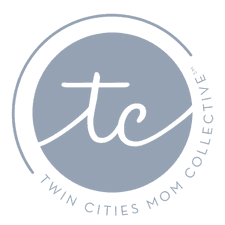
Kuumba. Kujichagulia. Mkeka. Kinara. “Habari Gani?”
These are all terms I recall teaching my students during my years as a classroom teacher as we explored holidays and cultural traditions around the world. Since then, though I still honor Kwanzaa through awareness and educating others, my family and I have never formally celebrated the holiday on our own! With all the disruption, reflection, chaos, and awakenings that 2020 has delivered…. I’ve decided that this is the perfect year to welcome this beautiful celebration of family and togetherness into our holiday traditions!
Kwanzaa, created in 1966 by Dr. Maulana Karenga, comprises of seven days worth of celebration and reflection. It’s a holiday organized around the Nguzo Saba (Swahili for “seven principles”), aimed to unify African American and Pan-African communities who experienced loss of distinct cultural identity due to the tragic impacts of colonialism (i.e. the Mid-Atlantic slave trade). Each day of Kwanzaa is centered around the lighting of seven candles that represent the guiding principles and tenets of African culture/community.
Now that my daughter is starting to understand more about traditions, I am so excited for her, my husband and I to celebrate our first Kwanzaa together! Instead of summarizing the generalities of the holiday (you can find lots of info here), I’ll walk you through how I plan on celebrating. After doing all the research and exploring the different components that make up the week of Kwanzaa, I realize that this first year will definitely symbolize humble beginnings, but I’m excited to give it a try and continue to build upon our foundation as the years progress.
In preparation for the celebration, it’s important I at least have a kinara (candle holder) and its mishumaa (seven candles: three red, one black, three green). Each candle is lit at the beginning of the day to set the tone! Celebrants also usually have a mkeka (a straw mat that represents the beautiful African foundation) for the kinara and elaborate surrounding decorations; such as harvest fruits (mazao), African art and cloths. Also included in the preparation is the Kikombe cha Umoja, or unity cup. I plan on taking the DIY approach to creating the kinara and mkeka, so wish me luck!

After the kinara and mkeka are prepared, it’s important for me to study the Nguzo Saba to plan out our activities for the day. It’s great that my husband and I will both be on vacation from work during this time so that we can create authentic (and hopefully long-lasting) memories with each other and our daughter!
Nguzo Saba
Each day’s celebration is led by the following principles of Kwanzaa (pulled directly from the official Kwanzaa website). This is how I plan to celebrate with my family! Since my daughter is only 2.5 and may not understand the more complex principles, I’ve checked out seven (probably more, lol!) picture books that are all about Kwanzaa! She LOVES books, so I know she’ll be excited to choose a new one each day.
Day 1. Unity: “To strive for and to maintain unity in the family, community, nation, and race.”
To celebrate Umoja, we will light the center, black candle and greet each other with the Swahili phrase “Habari Gani?” and respond with the principle of the day! For our activity, my hope is that we create a 2021 vision/mission board for our family, entailing how we will contribute to unity both in and outside of our home.
Day 2. Self-Determination: “To define ourselves, name ourselves, create for ourselves, and speak for ourselves.”
To celebrate Kujichagulia, we will light both the center black candle and then the far left red candle and greet each other again with “Habari Gani?” before we respond with the principle of the day! For our activity of the day, the plan is to create acrostic name poems, as well as a list of affirmations we can speak over ourselves as a family.
Day 3. Collective Work and Responsibility: “To build and maintain our community together and make our brothers’ and sisters’ problems our problems, and to solve them together.”
“Habari Gani?” On day 3, we will light the black candle and the two far left red candles. Normally, we would participate in some sort of community service, but since we’re staying #safeathome, I will operate in the true spirit of Ujima and ask my husband to help solve this “problem” of not being able to celebrate day 3 how we would during a non-pandemic season of Kwanzaa. I’m excited to see how we’ll honor this principle!
Day 4. Cooperative Economics: “To build and maintain our own stores, shops, and other businesses and to profit from them together.”
Though this is our first year officially celebrating all seven days of Kwanzaa, I typically celebrate day 4 (Ujamaa) every year by purchasing something from a Black owned business and will continue this tradition this year. There are countless directories and listings of Black owned businesses to support! You can check out the one on TCMC here! We will continue to light the black candle first, and then the far left red candle next, moving from left to right until we light all the red candles.
Day 5. Purpose: “To make our collective vocation the building and developing of our community in order to restore our people to their traditional greatness.”
Today marks the lighting of the 1st green candle (closest to the black candle)! I’m looking forward to celebrating Nia by sparking a rich discussion with my hubby about what it means for us to operate in purpose both individually and as partners, and to share our hopes and dreams for the legacy we wish to leave behind. Questions such as: What is something you could offer the world for the rest of your life that brings you joy? or How would you like to be remembered after you’re gone? may result in a really great conversation for you and your loved ones!
Day 6. Creativity: “To do *always* as much as we can, in the way we can, in order to leave our community more beautiful and beneficial than we inherited it.”
Light the next green candle! On the day of Kuumba, we will spend time together learning (or re-learning) how to play Mancala, one of the oldest African games that still exists today. My brothers and I “played” this game during childhood, but I never really got the hang of it so I’m excited to revisit it! I’m also exercising my creativity by preparing something fun for the children in my family who live afar!!
Day 7. Faith: “To believe with all our hearts in our people, our parents, our teachers, our leaders, and the righteousness and victory of our struggle.”
The last day of Kwanzaa, also the first day of the New Year, is dedicated to the guiding principle of Imani! This day is centered around the foundation of faith, in ourselves, our spirituality, and in our journeys. After we light all seven candles, we will begin our day in prayer, praying for those who are with us in the present, those who were here before us, and those to come. After this, we will have our culminating feast or Karamu! My husband and I are both great cooks, so we’ll add our unique dishes to the traditional offerings of sweet potatoes, okra, greens, black-eyed peas, and the like. My daughter and I are about 80% plant based (still eat certain types of fish), so I look forward to creating healthy alternatives to the soul food we love during the holiday season.
As you can see, Kwanzaa is a holiday centered around family, love and reflection. Some families offer Zawadi (gifts) on the last day of the celebration, but since we’ll be receiving lots of Christmas gifts in the mail from family this year, I’ve purchased gifts to give my daughter and husband each day throughout Kwanzaa instead. It’s also important to note that the mishumaa (seven candles) can also be lit alternatively instead of the order I noted above. Kwanzaa is not a religious holiday, and is a great way to expose children (and adults) to another cultural tradition despite your own ethnic background!
So tell me, have you ever celebrated Kwanzaa? Do you plan on incorporating this celebration into your holiday season this year? I’d love to hear about it in the comments! For additional resources and ideas click here.



